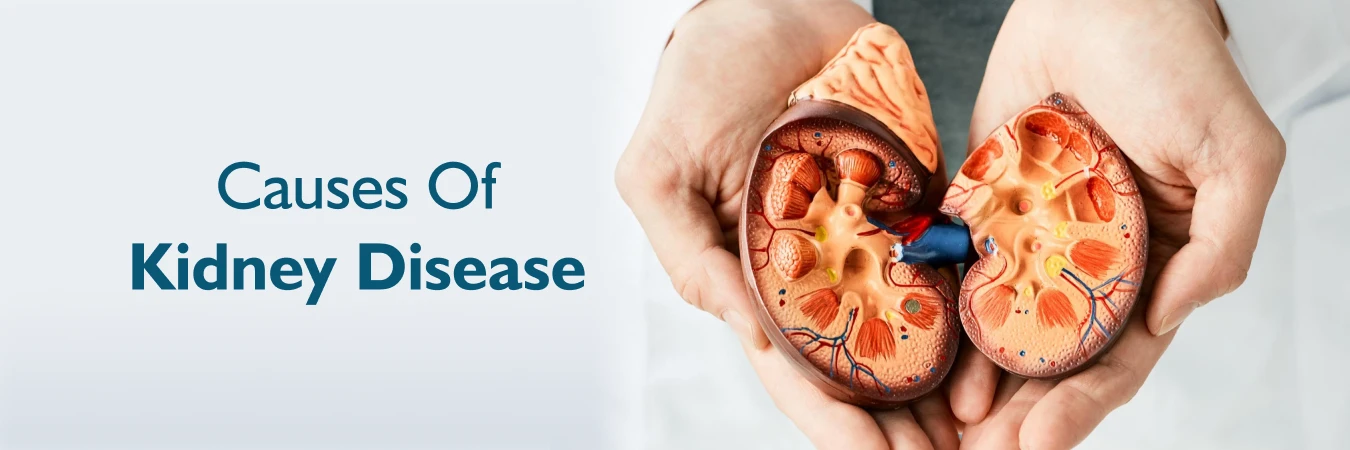- Cardiology 84
- Dermatology 45
- Endocrinology 33
- ENT 16
- Fertility 190
- Gastroenterology 78
- General-Medicine 81
- Gynecology 80
- Hematology 19
- Infectious-Diseases 33
- Neurology 52
- Oncology 34
- Ophthalmology 23
- Orthopedics 69
- Pediatrics 31
- Procedure 23
- Public-Health 144
- Pulmonology 59
- Radiology 8
- Urology 68
- Wellness 161
- Woman-and-child 77

How to Recognize Potential Kidney Problems
Kidneys are vital organs that perform essential daily functions, but their importance is often overlooked until problems occur. Early symptoms of kidney disease are subtle and can be mistaken for other conditions, making detection challenging.
Recognizing these early signs is crucial for effective treatment and preventing serious damage. Prioritizing kidney health and monitoring for symptoms can help address potential issues before they escalate.
Symptoms
Changes in Urinary Function
The first symptom of kidney disease is a change in the amount and frequency of urination. The changes include:
- Increase or decrease in the amount of urine
- Dark-colored urine
- Feeling the urge to urinate
- Increase or decrease in the frequency, especially at night
Secure your health with a second opinion. Make informed decisions and book your appointment today!
Get A Second OpinionPain While Urinating
People with kidney disease may have difficulty; they feel pressure or pain while urinating. Pain or burning sensation during urination may indicate urinary tract infection. If the infection spreads to the kidneys, it might cause fever and pain in the back.
Blood in Urine
People who get blood in the urine should never ignore it as it is a definite cause for concern. This symptom indicates serious harm to the kidney.
Foamy Urine
An excessive bubble in the urine, which requires flushing several times, is addressed as foamy urine. This indicates protein in urine and it is one of the main symptoms of kidney disease.
Swelling in Hands or Feet
Kidneys are responsible for the removal of waste and extra fluid from the body. When the kidney functioning is decreased, the extra fluids build up in the body causing swelling in the legs, ankles, feet, face.
Extreme Fatigue, Anemia
Kidneys produce a hormone called erythropoietin which helps red blood cells to carry oxygen. When the kidneys don't function properly, the hormone levels drop drastically which results in anemia and leads to symptoms like weakness and extreme fatigue.
Dizziness
Anemia due to kidney disease also reduces the amount of oxygen carried to the brain which may cause dizziness. This, in turn, leads to trouble with concentration.
Dry & Itchy Skin
Decreased kidney functioning can cause waste build-up in the blood which causes severe itching and skin rashes.
Ammonia Breath and Metallic Taste
This symptom is an indication of chronic kidney disease. Renal failure increases the level of urea in the blood. This urea is broken down to ammonia in the saliva which causes urine-like bad breath known as ammonia breath. It is also associated with an unpleasant metallic taste in the mouth.
Shortness of Breath
If the kidney disease is severe enough, fluids can build up in the lungs and lead to a feeling of breathlessness. Along with this, anemia is caused due to kidney disease, which makes the body starve for oxygen, and leads to breathlessness.
Pain in the Back or Sides
This symptom is a common indicator of kidney disease but it is not seen in everyone who suffers from renal failure. A severe cramping pain that spreads from the lower back into the groin can be experienced by patients with kidney disease.
Feeling Cold
Kidney disease causes anemia, this also causes you to feel cold all the time even in the warm surrounding.
Ready to take control of your health journey? Book your appointment now and start your path towards wellness today!
Book an AppointmentPoor Appetite
When kidneys are unable to remove the wastes from the body, the build-up of toxins and waste materials can lead to a lack of appetite.
A Rise in Blood Pressure
When the kidneys are damaged, they can no longer control the blood pressure effectively. Therefore, the force of blood against the vessels stretches them and causes further damage, and weakens the blood vessels in the kidneys.
Frequently Asked Questions
Common signs of kidney failure include changes in urination (e.g., frequent urination or reduced output), swelling in the legs or face, persistent fatigue, flank pain, dry or itchy skin, nausea, and high blood pressure.
Changes such as frequent urination, reduced urine output, or dark and bloody urine can signal kidney issues. These changes may indicate that the kidneys are not filtering waste effectively.
Swelling in the legs, ankles, or face may be a sign of fluid retention due to kidney problems. It's important to consult a healthcare provider to determine the cause and receive appropriate treatment.
Persistent fatigue and weakness can occur when kidneys are failing to remove toxins from the blood. This buildup can affect overall energy levels and mental clarity.
Dry or itchy skin can result from the accumulation of waste products in the blood when the kidneys are not functioning properly. This condition, known as uremic pruritus, is common in kidney failure.
High blood pressure can be both a cause and a result of kidney failure. Damaged kidneys can contribute to high blood pressure, and hypertension can further damage kidney function. Regular monitoring and management are crucial.

- Cardiology 2132
- Dermatology 168
- Endocrinology 135
- ENT 97
- Fertility 217
- Gastroenterology 232
- General 478
- General-Medicine 1685
- Gynecology 169
- Hematology 85
- Infectious-Diseases 208
- Neurology 207
- Oncology 345
- Ophthalmology 65
- Orthopedics 187
- Pediatrics 83
- Procedure 72
- Public-Health 209
- Pulmonology 126
- Radiology 13
- Second Opinion 311
- Urology 294
- Wellness 600
- Woman-and-child 447
Related Blogs
If you have any questions, please fill out the enquiry form or call us, and we will get back to you promptly.
040-68334455